- Your School Type
- Solutions
- Resources
- Blog
- Events
- More
- Contact Us
- Book a Demo
- Get a Quote
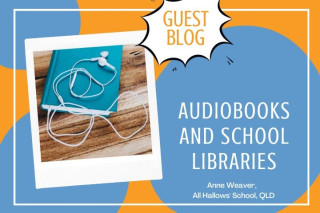
We are excited to share this guest blog written by Anne Weaver, Head of Library and Information Services at All Hallows' School.
Audiobooks are a great way to experience reading, both for recreational and also curriculum purposes. Here are some ideas about using audiobooks for Curriculum purposes. Some students or staff find it preferable to hear a book read aloud, as they can listen while doing other activities, such as when they travel or exercise. Audiobooks can be essential for students with learning disabilities, such as sight impairment or dyslexia. Some audiobooks are narrated so well, they create a different and very pleasurable experience.
Audiobooks for Set Novels can be used in several ways with further implications:
At school, there are 2 categories of students to consider in relation to audiobooks: those with disability and those without which will be explored further. If needing to check copyright, such as how copyright defines disability, see Smartcopying Homepage - Smartcopying and search for “disability,” “audiobook,” etc to see latest relevant legislation.
If the audiobook is wanted for a teacher to play to a full class or for individual use by students; Smartcopying confirmed that teachers can play audiobooks to a full class and only need one copy of the audiobook; teachers can even use a Council Library or other copy – the school does not have to own the audiobook; it just needs to be a legal copy.
It is worth considering video as an option. Some novels or plays may have the full text of a print item in video format when they are acted out or filmed and may also come with subtitles.
At our school, we have audiobooks for all our set novels for students with disabilities, but this has involved a large array of sources to achieve this. It is easier to provide audiobooks for Set Novels for teachers to play to a whole class use and also for students with disability, than it is to provide audiobooks for Set Novels for all students for individual personal use, due to cost and availability, but it is very important to be able to offer audio format for students with disability. Demand for audiobook options is increasing from students, so hopefully more access options will become available.
For students with a disability, we have a library procedure for confirming if students are identified as having a disability, in conjunction with our Learning Support Department. Where students are pre-identified, a private note is placed on the library catalogue to advise Library Assistants. Teachers advise these students know they can come to the library and obtain audiobooks, and this enables Library staff to explain copyright requirements, especially that they should not share the file. Since Covid, if there is a reason the student cannot come to the Library, we send them a link to the file from a secure school Sharepoint site and email the guidelines to the student.
If a teacher, parent or student expresses that a student has a reason for needing audiobooks, then we follow this up with Learning Support staff to check the student qualifies as having a disability, as per copyright laws, to use format shifted audiobooks; otherwise the guidelines below for “general” students apply.
There are a range of options to consider when trying to source audiobooks for students with disability. As we are a library, we prefer to buy an audiobook in a format we can lend to more than one student. If this is not a concern, then there are many options such as audible, itunes or google play, that provide audiobooks. Kindle has a version that can be played on a PC and supplies audiobooks. Our school does not allow students to use their phone during the school day which rules out some options. Also, it is more efficient to have a copy ready for students with a disability, rather than having to buy a copy individually for each student.
It is often necessary to source audiobooks from students with disability from a range of sources, due to problems with availability.
Please see below picture of our collection of audiobooks for set novels for students with disability. These DVD cases contain a USB with the audiobook - the DVD case is simply a storage means . We now use a USB C adapter to download the audiobook to the student device. We have more audiobooks than these for students with disability, but these may be available via our Overdrive or Wheelers subscriptions. Since Covid, if there is a reason the student cannot come to the Library, we send them a link to the file from a secure school Sharepoint site and email the guidelines to the student.

We list the format options on our Oliver Library catalogue. We have Reading Lists on Oliver to assist staff and students access information about available format options. Please see the images for how the audiobooks appear on the catalogue.
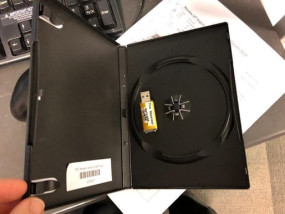
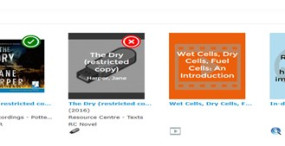
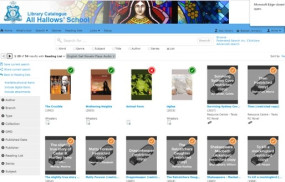
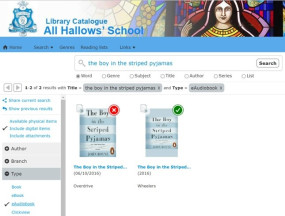
Library catalogues can assist when school libraries have multiple sources of audiobooks by providing a “one stop shop” to find these. Above is a screenshot from our Oliver Catalogue. Patrons can narrow the selection to e-Audiobooks only by choosing this from the “Type” menu on the left. I am not sure why we named these e-Audiobooks instead of audiobooks; the term is used here for all audio recordings.
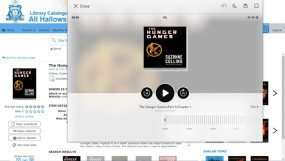
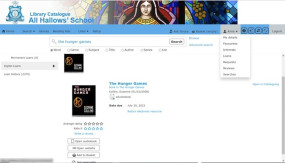
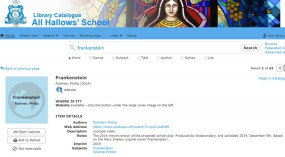
As touched on previously in the discussion about resources to support disability, other options to consider in addition to audiobooks are technologies that read aloud print or online text. These assistive and immersive options are increasingly available. If the text is digital, then software can read aloud information on a digital screen : Microsoft, Android, and Apple. This was once very robotic, but the quality of automated audio has greatly improved.
Use Text To Speech software (TTS) to convert ebooks from subscriptions sites like SORA into audiobooks. There may be other methods that work, but we have not worked these out. However, success was achieved opening an ebook from SORA using the Google Chrome browser and enabling an Ebook to be read aloud by installing the free Read Aloud Extension from the Chrome web store. However, this may start from the beginning of the ebook each time. Read more here.
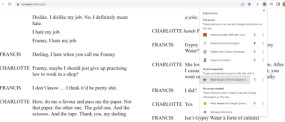
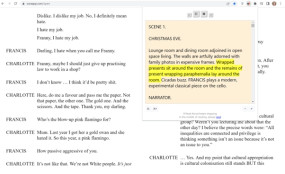
The issuing of Set Novels was once always in print, but this is changing.
Options for accessing audiobooks and ebooks for learning purposes are constantly changing. With increasing demand for audiobooks for studying set novels and for recreational reading, school libraries will need to regularly revisit supply opportunities, to meet client demand.
This blog was originally published by Anne Weaver on her blog, Reading Power.